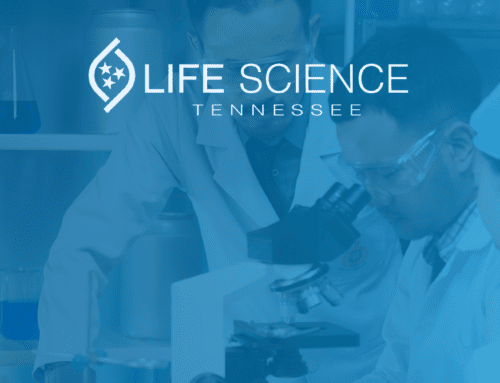TN General Assembly Funds SBIR/STTR Matching Fund at $7M in Final Budget
LST-supported legislation will expand access to medical innovations and grow industry in TN
Nashville, Tenn. – Life Science Tennessee (LST), a statewide member organization for life science companies, research institutions and economic development groups, commends the Tennessee General Assembly for supporting numerous bills that promise to expand Tennessee’s innovation-based economy and grow the state’s life science workforce.
This year the legislature approved funding for the Small Business Innovation Research/Small Business Technology Transfer (SBIR/STTR) Matching Fund at $7 million. This important program remains one of the most promising ways to commercialize state-grown technologies.
“By more than doubling funding for the program, we have put Tennessee on a better path to retain top scientific and research talent and support new life science technologies,” said Abby Trotter, executive director of LST and BioTN Foundation. “We are grateful to Governor Lee and members of the General Assembly—and particularly Lt. Governor Randy McNally, Speaker of the House Cameron Sexton, Senator Bo Watson and Rep. Patsy Hazelwood—for their leadership and recognition of the impact of this vital program for Tennessee’s future.”
The SBIR/STTR Matching Fund is a competitive, awards based program whose goal is to transform federally funded research and development into public benefit through commercialization efforts. The SBIR/STTR Matching Fund provides up to $150,000 in funds to a Tennessee-based company that has won federal funding through the federal grant process—funding that is critical to retaining high-tech, high-growth startups in Tennessee.
“As our advocates made clear, the SBIR/STTR Matching Fund is one of the most impactful programs we have in Tennessee to help high-tech, scalable startups,” added Trotter. “This additional funding will ensure that we continue to support our world-renowned research institutions as they bring exciting new technologies to market.”
To date, 52 companies have leveraged more than $24 million federal dollars. These funds have helped Tennessee small businesses hire additional employees, build better technologies and obtain more capital to further growth in Tennessee. Of the 52 grantees, 26 have underrepresented CEOs (female, minority and/or veteran) and all come from across the state. Nearly 20 percent of the program’s funding has gone to rural and agricultural companies.
Additionally, the Tennessee General Assembly passed an LST-supported bill to expand access for qualified employment in the state’s medical and research laboratories. The new regulations enable laboratories to comply with federal clinical laboratory regulations, allowing Tennessee laboratories to access a broader workforce.
The laboratory personnel bill was sponsored by Sen. Becky Massey and Rep. Kevin Vaughan.
Prior to passage of this bill, laws in Tennessee created unnecessary shortages of laboratory personnel. With this legislation, Tennesseans with bachelor’s or advanced degrees in chemical, physical, biological or clinical laboratory science or medical technology are eligible for employment in most laboratories in the state. This new law makes Tennessee’s laboratory personnel requirements consistant with the majority of the U.S.
Life Science TN also supported bills that passed the Tennessee House and Senate to reform Tennessee’s health insurance practices, expand access to medications and support innovation.
About Life Science Tennessee
Life Science Tennessee is a statewide, nonprofit, member organization whose mission is to advance and grow the life science industry in Tennessee through advocacy, partnerships and alignment with economic and workforce development. Members include companies, universities, research institutions, government and economic development groups, and other industry associations involved in discovery and application of life sciences products and related services that improve the health and well-being of people throughout the world. LST conducts business and economic development activities; advocates on behalf of the industry; educates the public about the benefits of life sciences research and product development; and provides a network for the exchange of ideas, information and opportunities.
# # #



